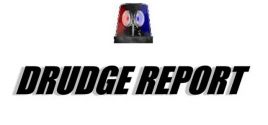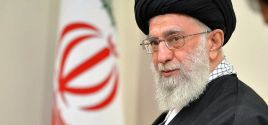Cannibalism and Calculation in North Koreaby James E. MillerFeb. 04, 2013 |
Popular 
John Hagee Cheers Israel-Iran Battle as 'Gog and Magog War,' Will Lobby Congress Not to Deescalate

Right-Wing Media See Traffic Plummet in Wake of Algorithm Changes by Facebook, Google

Patriot ACT on Steroids: FISA Bill Forces 'An Enormous Range' of Businesses to Act as NSA Spies

Congress Introduces ADL-Backed 'Countering Antisemitism Act' to Police Online Speech

Reuters: Iran Gave 'Wide Notice' Days Before Attack on Israel
 When state predation reaches a high degree of oppressiveness, there is no telling what the tyrannized will resort to in order to survive. A widespread lack of material sustenance or nourishment turns craven behavior into the norm. Society turns on itself as civilized behavior falls prey to unruly practices. This is exactly what is occurring in communist North Korea. Under the iron-fisted rule of Kim Jong Un, numerous undercover reporters are finding evidence of cannibalism across the country. Famine and drought are wreaking havoc among farming communities. Some are so desperate that they have resorted to killing and eating their own children. According to Mail Online, cannibalism is also occurring within the country's prison camps. To outside observers, these reports are indeed horrid. Under a totalitarian regime North Koreans are subject to squalid living standards. At the same time, the country's supreme leader is spending vast amounts of money building up the military. Recently, the Pyongyang regime declared the United States as its "sworn enemy" and announced it will continue to test long range missiles as well as nuclear weaponry. U.S. Defense Secretary Leon Panetta reportedly told American troops that "North Korea just fired a missile. It's an intercontinental ballistic missile, for God sakes. That means they have the capability to strike the United States." Several interest groups, such as Americans for a Strong Defense, are sounding the war drums on this supposedly-immediate threat. Even the South Korean government, which receives billions of dollars in foreign aid along with a permanent U.S. military presence, is warning America that it faces a grave threat from its neighbor to the north. This announcement comes despite the fact that there is no evidence the North Korean government possesses the technology for such a missile to work. The war profiteers are making their usual noise about the prospect of an imminent communist attack. In the name of human freedom and democracy, they advocate violent invasion of a sovereign nation. The neoconservative movement in the United States has been demanding war with North Korea for decades and this new bravado by the military will only ignite their enthusiasm. But despite the cries of chicken-little warhawks, the fact is the communistic regime in North Korea will eventually collapse on its own. Reports of cannibalism only reinforce this truth. In his groundbreaking essay Economic Calculation in the Socialist Commonwealth, Ludwig von Mises elucidated precisely why communistic economic systems do not function efficiently and are bound to collapse. Without a social system of private property and an economy based on profit-and-loss accounting, a society will never advance beyond a primitive state. Individual economic calculation is impossible without the use of prices. And because prices are the objective manifestation of subjective value, they are formed through the exchange of property in the form of money or goods. As Mises writes, In an exchange economy the objective exchange value of commodities enters as the unit of economic calculation"¦it renders it possible to base the calculation upon the valuations of all participants in trade.Economic calculation allows for the coordination of market processes. Without it, capital investment becomes a pathetic and arbitrary process that is not at all directed toward consumer wants. The living standard enjoyed today by Western society could not be achieved without decades of capital being directed towards better methods of production. If there exists no price system reflective of relative scarcity and demand for entrepreneurs to exchange goods over time, then there is no final product to meet a want on the other side of the production process. In sum, without a market for capital goods, there is no rational for goods to be distributed. Central planners working without prices are destined to allocating resources in a totally "arbitrary" manner. They are relegated, in Mises’ words, to "groping in the dark." It is the existence of authoritarian communism in North Korea that severely limits the ability of the people to rise above a subsistence level of survival. The pricing system created through private property is effectively outlawed. There are grand buildings erected yet not enough electricity to power street lights. Many visitors to the country are treated to stays within modern hotels and dining restaurants; however, this is all just a great facade. The country remains exceedingly destitute except for a small cadre of controlling elite. In other words, it is modus operandi for the state writ large. Like Soviet Russia, North Korea is sustained through private, black markets which allow for the trading of clothing and food. Without them, the country would be in far more disarray. The bellicose rhetoric of North Korean leaders masks the extreme difficulty the regime has with imposing total communism. Under the rhetoric of national togetherness and cult of personality, therein lies a ruthless regime responsible for the death of millions. Try as it might, no government, regardless of the leaders’ collective determination, can create a utopia devoid of scarcity. Instead of material abundance, the people will only receive misery and denial of their natural rights. Legendary investor Marc Faber once remarked that Keynesian economist such as Paul Krugman who frantically focus on government not doing enough to bolster the economy “should go and live in North Korea.” The reality is that communism has made life a living hell for those living under the dictatorship of Kim Jong Un. But this terrible state of affairs does not necessitate military intervention. Communism always collapses under its inability to function. The warmongers, welfare statists, and egalitarians who marvel at the accomplishments of totalitarian government are really just paying tribute to force and violence. Their concern is not with human betterment- just control for personal enrichment. _ James E. Miller holds a BS in public administration with a minor in business from Shippensburg University, PA. He is the editor-in-chief at the Ludwig von Mises Institute of Canada and a current contributor to his hometown newspaper, the Middletown Press and Journal. He currently works in Washington D.C. as a copywriter. |



